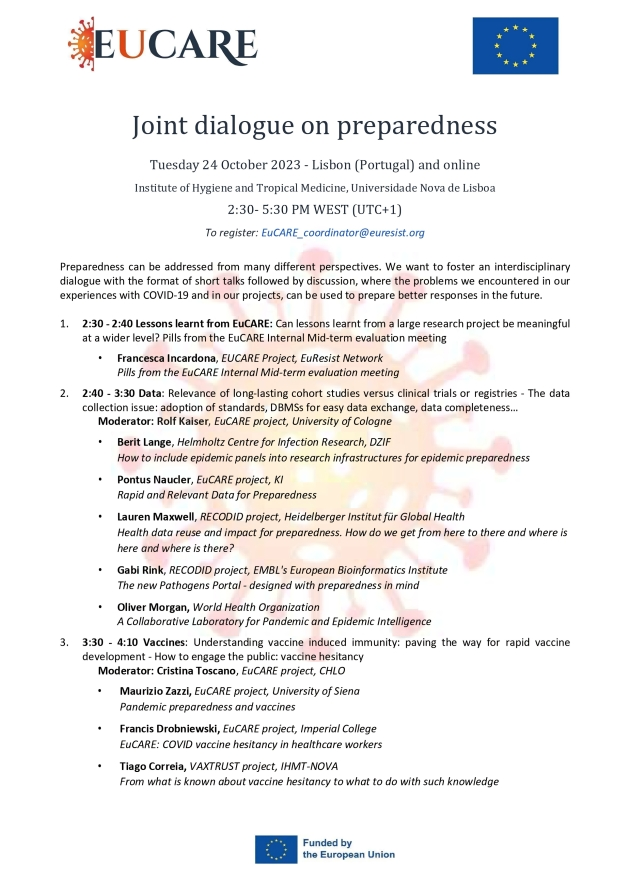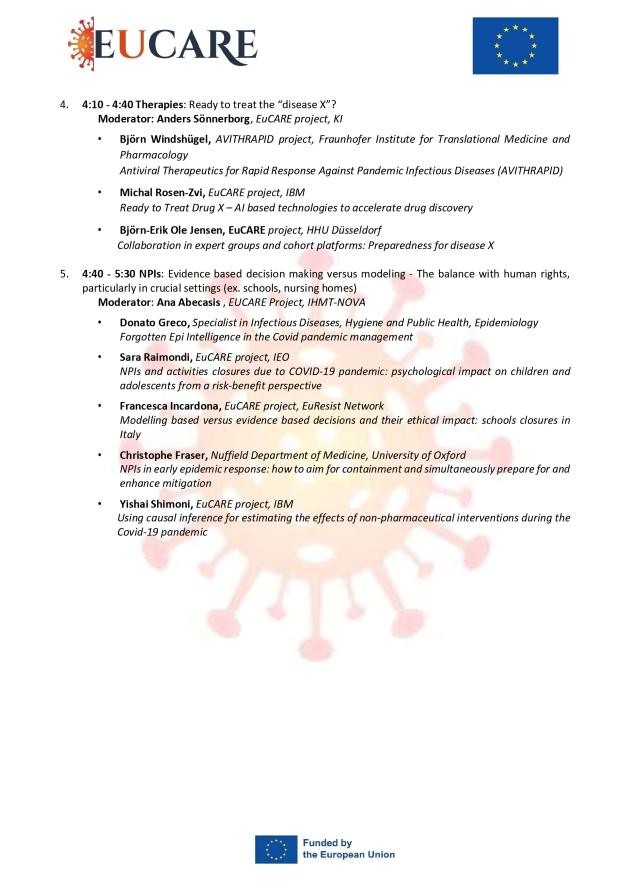How can we use our experience and our projects to be more prepared the next time?
On October 24th 2023, EuCARE hosted an open ‘Joint Dialogue on Preparedness’ to reflect on the COVID-19 pandemic and on lessons learnt with renowned scientists from very different backgrounds.
The dialogue was very informative and there was opportunity for some lively discussions.
We are happy to share with you some key take-home messages.
1. A strong evidence-base is essential for the design of successful and ethically acceptable non pharmacological interventions: epidemiological studies should be run quickly, complemented by other observational and randomised controlled studies, to shape informed decisions.
2. Crucial infrastructure (such as biolabs, hospitals and schools) should be linked into centralised national-level networks, long term cohorts or data registries in order to rapidly provide reliable data ready for modelling and analysis.
3. Data collection, management and storage, together with all the aspects it brings about, is fundamental in order to rapidly assemble data to study a new threat and to derive evidence-based interventions. It implies diffused data culture, interoperable Electronic Health Records in place, use of standards, policies to share data.
4. Redundancy of personnel in the healthcare system is key to being able to promptly devote extra effort to face unexpected events. There is scarcity of key figures like IT personnel and research nurses in hospitals.
5. Trust in health care systems and health authorities is essential for the success of pandemic preparedness initiatives and interventions.
6. Artificial intelligence brings promising results for research and development on treatment and preventive measures for pandemic preparedness.
You can see below the Agenda.


